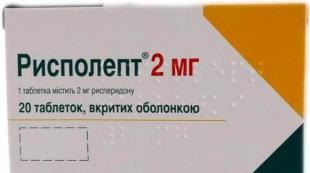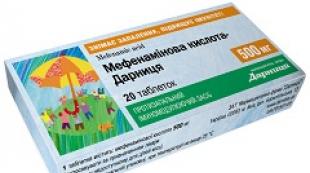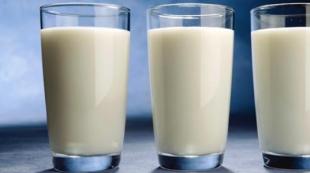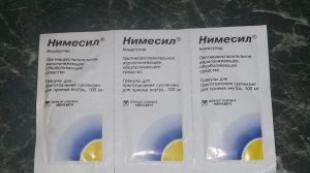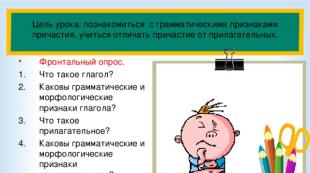What are vitamins for briefly? Why do people need vitamins?
Products that proudly declare on their labels that they are fortified take pride of place in supermarkets. Whole display cases are poly vitamin preparations Not every taste and budget meets visitors in every pharmacy. Loving grandmothers thrust fruit into their grandchildren and say: “Eat some vitamins, baby.” Sound familiar? It seems that the whole world is on a hunt for vitamins, and all people are busy from morning to night trying to get as many of them into their bodies as possible. Yes, a person really could not live without these substances. Why are they so useful and so irreplaceable? But, first things first. At the beginning of the 20th century, Casimir Funk discovered that a substance contained in rice bran can heal beriberi. As it turned out, this substance was thiamine (vitamin B1), the deficiency of which causes the disease. It was Funk who discovered new substances and called it vitamins. By the way, it turned out to be very telling. After all, “vita” means “life”. Indeed, life is impossible without vitamins. These highly active organic substances take part in all processes occurring in the human body. In total, 13 types of vitamins that are essential for life have been discovered to date. These are: - A (retinol); - B1 (thiamine); - B2 (riboflavin); - B6 (pyridoxine); - B12 (cobalamin); - C (ascorbic acid); - D (calciferol); - E (tocopherol) ;- K (phylloquinone):- PP (niacin);- H (biotin);- folacin ( folic acid); - pantothenic acid. All these vitamins belong to two types - water and fat soluble vitamins. There are four more substances that are not included in the main groups. They are called vitamin-like compounds. This: lipoic acid, choline, inositol, vitamin P (bioflavonoids). Each of these biologically active substances works differently in human body. We can consider several examples. Vitamin A (fat-soluble) stimulates immune processes, ensures the production of antibodies, and has a beneficial effect on vision. He plays important role in the formation of bones and teeth. Vitamins Group B – important participants metabolic processes. They are involved in the process of protein synthesis, which makes up body tissues. Without these connections it is impossible to function nervous system.Vitamin C – the most powerful antioxidant protects the body from harmful external influences. Ascorbic acid necessary for tissue growth and repair, good immunity. In addition, it is needed for normal activities nervous system. And in Lately treatment method has become widespread nicotine addiction with help higher doses vitamin C. Each of the vitamins has an extensive track record. People cannot survive without them, and therefore the pursuit of “vitaminization” becomes quite understandable. Moreover, the human body is not able to synthesize vitamins itself (with very few exceptions), and replenishes their supply from the outside. The body is not even able to store them, and therefore every day people must receive optimal doses biologically active compounds. This is necessary for normal functioning person. But where do vitamins get into homo sapiens? Before the discovery of these organic matter people received them only with food. After the discovery, vitamin preparations produced by pharmacists appeared. The latter have certain advantages over the former. So, in order to get all the necessary substances into your body, a person must eat a certain amount of vegetables and fruits every day. But what if vegetables are not in season? Multivitamin preparations come to the rescue. Their composition is balanced. One tablet contains daily dose everyone necessary for a person vitamins But, unlike those obtained from food (the body has to work hard to get them), “chemical” vitamins are very easily and completely absorbed. And this threatens with hypervitaminosis, the symptoms of which are just as unpleasant, and much more severe, than the symptoms and consequences of vitamin deficiency.
What are vitamins and why are they needed? Without going into science and using chemical terms, these are simply necessary substances for the normal and proper functioning of the body. There is even a special science that studies vitamins. It's called vitaminology.
There are two types of vitamins: those that are absorbed with the help of fat and those that are perfectly soluble in water. The first include vitamins A, D, E, K. The rest include the entire group B and the well-known vitamin C.
All these substances perform their own function. The disadvantage of each of them immediately makes itself felt. But there is also the other side of the coin - excess. This also negatively affects the human body. Everything should be normal.
Let's take a closer look at each vitamin:
- Vitamin A (retinol)- necessary for normal condition skin, mucous membranes, vision. Contained in large quantities in the following food products: carrots, apricots, lettuce, liver, egg yolk. With a lack of vitamin A, it develops night blindness, wrinkles, dry skin, and dandruff appear. Nausea occurs with excess retinol, headache, drowsiness.
- Vitamin E (tocopherol)- has a positive effect on reproductive function and cardiovascular system. Contained in vegetable oils, chicken eggs, liver. Deficiency is characterized by weakness and nervousness. Excess is rare, but is characterized by an increase in blood pressure.
- Vitamin D (calciferol)- helps the body absorb calcium, necessary for the growth of bones and tissues. This vitamin is mainly produced in the human body, but prerequisite for this - is ultra-violet rays. When it is not possible to spend time under the sun, you need to eat foods rich in calciferol (milk, eggs, butter). If there is a deficiency, children develop rickets, and in adults the bones become soft. Excess is characterized by loss of appetite, nausea and even vomiting, constant thirst, weakness.
- Vitamin K- necessary for normal blood clotting. Contained in rose hips, spinach, cauliflower, tomatoes, and cereal plants. With a deficiency, a person is prone to hematomas and bruises.
- B vitamins- take care of our health in general, they are necessary for the proper functioning of all systems and organs. With a lack of B vitamins, a person faces general weakness, disruptions in the body that are fraught with problems with skin, hair, and nails. Food sources B1 - cereals, potatoes, nuts. B2 - peas, cabbage, tomatoes, brewer's yeast. B3 (vitamin PP) - meat, yeast, grains. B5 - eggs, kidneys, liver, sour milk. B6 - bread with bran, cereals, beans. B9, B12 - soy, orange, potato, fish, milk, kefir.
- Vitamin C (ascorbic acid). Probably even children have heard about it. Affects human health in general. It is a mistake to believe that citrus fruits contain the most of this vitamin. Pepper (bell and chili) - real vitamin bomb. Deficiency is extremely rare. The main symptoms: weakened immunity, muscle pain, weakness. Hypervitaminosis is characterized by abdominal pain, diarrhea, vomiting, and allergic reactions.
Vitamins are components necessary for the proper functioning of the human body. It is important to eat foods rich in vitamins. But you should also not forget that their excess can negatively affect your health. Be healthy!
Why do people need vitamins? Our body is unique - it can work for some time in full force even with a lack nutrients. But how does he manage to do this and what might be the consequences? Is it worth bringing yourself to this state or is it better to avoid this by taking vitamins?
Vitamins - biologically active substances organic origin. They are not a building material. But at the same time, vitamins are involved in almost all physiological and biochemical processes occurring in the body. In other words, the question “Why do people need vitamins” can be answered this way: without them, the normal course of all life processes is impossible. In case of their deficiency, and especially absence, vitamin deficiency develops. Its symptoms are initially invisible, and, as a rule, no one pays attention to them. Subsequently, fatigue, irritability appear, and skin condition worsens.

Today, about 20 substances are known that are classified as vitamins. They must enter the body daily in certain quantities. The peculiarity of vitamins is that they do not accumulate in the body and require constant replenishment. In addition, some substances can enhance the effects of others, while others, on the contrary, can inhibit them.
The need for vitamins depends on the age of the person. Extremely important up to a year and older. During this period there is active growth and Absence necessary substances may lead to various deviations in the future. Since the diet of babies is not as rich as that of adults (especially children under one year old), pediatricians recommend taking additional vitamins. The most suitable for the little ones are liquid complexes.
Vitamins in tablets are no less important for people B in this case occur in the body various changes and disorders associated with “fatigue” internal organs. Why do people at this age need vitamins?

For the full functioning of the whole body, removing nervous tension, improve memory, restore normal physical activity and healthy appearance.
The human body is not capable of synthesizing vitamins. We get most of them through food. However, it should be remembered that today the environmental situation leaves much to be desired. The products grown do not contain enough elements. And not everyone has the opportunity to eat well. In this regard, the question arises about the need to take special medications.
We have already found out why people need vitamins, all that remains is to figure out how to get them. People need to take vitamin-mineral complexes of different ages. Such drugs are available in pharmacies in a huge number. Which ones you choose depends only on you. There is absolutely no need to take them all the time. For example, in summer period you can completely abandon them. The optimal time is mid-autumn, early spring, and also during illness.
Each of us has heard the word “vitamins” at least once, and in childhood, my mother more than once bought us a package of sweet and sour “ascorbic acid”. However, rarely does anyone ask the questions, what are these vitamins, what are they, and what are they needed for? Let's find out what vitamins are, how they are beneficial to the body, and which foods contain the most of them.
What are vitamins for?
Vitamins - organic compounds, which are involved in many metabolic processes, help the body produce substances necessary for life, etc. Most of Vitamins are not synthesized in the human body, however, their presence is vital. That is why it is important to get a sufficient amount of vitamins “from outside” - with food, by taking vitamin preparations or dietary supplements.
What types of vitamins are there?

Scientists have accepted the division of vitamins into fat-soluble and water-soluble. The former dissolve in fats (vitamins A, D, E, K) and accumulate in adipose tissue and liver, the latter dissolve in water and are eliminated from the body quite quickly.
For every vitamin there is daily norm consumption. A deficiency of a certain vitamin in the body is called hypovitaminosis, an excess is called hypervitaminosis, and an absence is called vitamin deficiency.
| Vitamin | Why is it useful? | What products contain |
| Vitamin A (provitamin A) | Affects the normal function of vision, skin, urinary mucous membranes, respiratory tract. Accelerates wound healing. | Carrots, spinach, pumpkin, apricots, parsley, fish fat, cod liver, butter, egg yolks, milk. |
| Vitamin D | Affects the absorption of calcium and phosphorus salts from the gastrointestinal tract and their deposition in bone tissue and teeth, on the formation of immunity. Participates in blood clotting processes. |
Fish oil, salmon, tuna, sardines, cod liver, pork and beef liver, parsley, mushrooms, red caviar, egg yolk, butter, milk. Moderate sun exposure helps the body naturally replenish vitamin D deficiency. |
| Vitamin C | Strengthens the immune system, affects the absorption of iron, and has antioxidant properties. | Bell peppers, fresh and sauerkraut, potatoes, currants, citrus fruits, rose hips, kiwi, apples, garlic. |
| Vitamin E | Participates in work endocrine system. Affects the enrichment of the body with oxygen cellular level. Strengthens the walls of blood vessels. Protects cell membranes. | Sunflower seeds, vegetable and olive oil, butter, nuts, spinach, broccoli, carrots. |
| Vitamin K | Participation in the process of blood clotting and in the construction of bone tissue. | Pumpkin, spinach, all types of cabbage and lettuce, beans. |
| Vitamin B1 | Regulation of carbohydrate metabolism, “delivery” of energy to muscle and nervous tissue. | Yeast, cereals (oatmeal, buckwheat, wheat), peanuts, eggs, cottage cheese, pork, hazel. |
| Vitamin B2 | Regulation of metabolism, influence on the formation of immunity, on visual acuity. Improves the condition of the skin and mucous membranes. | Cabbage, green peas, beans, tomatoes, almonds, wheat sprouts, turnips, fatty cheeses. |
| Vitamin B5 | Participation in all types of metabolism. T.N. "beauty" vitamin. | Yeast, egg yolk, liver, kidneys, dairy products, whole wheat bread. |
| Vitamin B6 | Affects growth. Participates in hematopoiesis, digestion, and the functioning of the central nervous system. | Potatoes (especially baked ones), bananas, carrots, beans, cabbage, yeast, cereals. |
| Vitamin B9 (folic acid) | "Women's" vitamin. Affects the formation of the nervous system. Participates in protein metabolism and hematopoiesis. | Spinach, parsley, dill, green onions, peas, chicken liver, brewer's yeast, orange juice. |
| Vitamin B12 | Affects protein metabolism, growth and development. Participates in the activity of the central nervous system and hematopoiesis. | Beef liver, lettuce, greens, dairy products, seafood. |
| Vitamin H | Participation in metabolism, synthesis digestive enzymes, antibodies. | Bananas, grapes, peas, onions, cauliflower, beets, spinach, cabbage, carrots, pork, beef, eggs, milk. |
| Vitamin PP | Work stimulation of cardio-vascular system and CNS. Participation in all types of exchange. Promotes healthy skin and hair. | Beef by-products, fermented milk products, cheese. eggs, turkey, tuna, dates, peaches, broccoli. |
A lack of one vitamin can lead to disruption of the metabolism of other vitamins and even their complete removal from the body. For example, vitamin E deficiency leads to impaired vitamin D metabolism.
It is important to know that a lack of vitamins in the body can be caused not only by their low intake from food, but also by an unbalanced human diet in general. For example, insufficient intake fat negatively affects the absorption of vitamins A, E, D, K.
In conclusion, I would like to repeat that the role of vitamins in the optimal functioning of the body is enormous. Each vitamin has a unique set useful properties(see table above). That is why a person’s nutrition must be balanced, and the diet must contain everything necessary vitamins in quantities recommended by experts. In winter, you can nourish the body with multivitamin preparations, but it is better, of course, to do this under the supervision of a doctor.
Nowadays, even children have no doubt that taking vitamins is simply necessary. This is talked about on TV screens, newspapers and magazines write, and doctors strongly recommend it. A Why does our body need vitamins?? Can we do without them, and what products contain them?
Sooner or later, a lack of vitamins will definitely affect our health. We begin to feel weak, tired, and get sick more often. Everyone, without exception, needs vitamins, from young to old, but it is children and the elderly who need them especially urgently.
Vitamins are not a medicine that should only be taken when you are sick. The body needs vitamins Always. They contribute correct exchange substances, the absorption of fats, proteins and carbohydrates, without which we simply cannot do.
In nature, everything is harmonious and one cannot exist without the other. Vitamins in this case are also no exception. It cannot be said that we need some vitamins, but we can do without others - each has its own purpose and effect on the body.
- Vitamin A
Pay attention to your skin. If your skin is prone to dryness and roughness, then you may be lacking this particular vitamin.
And its lack can also cause various diseases eyes, such as: inflammation of the cornea, with the formation of ulcers on it or worsening visual perception at night and evening time days.
A lot of this vitamin is found in beef kidneys, fish liver, egg yolk, butter. Fish oil has been and remains the leader in vitamin A content.
Surely many of us have heard since childhood about the benefits of carrots, which contain a lot of carotene - a special substance that, when ingested, is converted into vitamin A.
But not only carrots are rich in carotene; sufficient amounts are found in lettuce, sorrel, spinach, pumpkin, onions, tomatoes and apricots. And in order for carotene to be converted into vitamin A and better absorbed by our body, vegetables must be consumed with some kind of fat.
- B vitamins
B vitamins are usually grouped together because there are several of them and each has its own role and effect on the body. Pay attention, first of all, to the following:
IN 1- thiamine (helps convert the fats, proteins and carbohydrates we consume into energy). Bread and peas, nuts and egg yolk, liver and oysters are rich in thiamine;
AT 2- riboflavin (“the engine” of all metabolic processes in the body, is involved in the synthesis of hemoglobin). Eat dairy products, green vegetables, whole grain breads and cereals;
AT 8- inositol (helps our liver, preventing it from “swimming” with fat). One of the few vitamins that is produced by the body itself, for which we are very grateful. If this vitamin is produced in sufficient quantities, then depression does not threaten you;
AT 9- folic acid (promotes cell division, indispensable for the development of immune and circulatory system). Don't forget to include oranges in your diet, legumes, fish.
AT 10 - para-aminobenzoic acid(normalizes intestinal microflora, increases milk secretion in lactating women). It’s all contained in the same products, as well as potatoes and brewer’s yeast.
At 17- amygdalin (took on the function of protecting the body from cancers). Contained in peach and apricot kernels, apple and cherry seeds.
- Vitamin C
You get tired quickly, you pale skin and your appetite has worsened? These are signs of a lack of vitamin C in the body. You have a chance to get sick faster than others during an epidemic. Lean on fresh and sauerkraut, tomatoes, green onions and radishes. And also black currants, rose hips, rowan and citrus fruits.
- Vitamin D
Calcium and phosphorus are vital for our bones, which will be in abundance if the body receives vitamin D. A deficiency in this vitamin leads to a disease such as rickets, which is characterized by curvature and softening of the bones.
Vitamin D is formed in our body under the influence sun rays. Please note that ultraviolet rays, which contribute to the formation of the vitamin, do not have their effect through window glass. From this we conclude - frequent walks on fresh air will save us from vitamin D deficiency.
It is unlikely that it will be possible to compensate for the lack of vitamin with food, since they contain it in very small quantities.
- Vitamin E
Vitamin E takes care of muscular system human, normalizes the functions of the endocrine and sex glands, slows down the aging process. Indispensable for people suffering diabetes mellitus, as it reduces the need for insulin. Contained in vegetable oils (cottonseed, corn, sunflower, etc.), green peas, beans, apricots and peaches.
- Vitamin K
If you do not have osteoporosis or problems with blood clotting, then, with great confidence, we can say that everything is fine with this vitamin in your body.
Continue to eat green vegetables and leaf salads. Don't forget the nettle leaves, walnuts and cabbage of all kinds.
- Vitamin N
Vitamin N (lipoic acid) in its properties is very close to B vitamins, because it also takes an active part in lipid and carbohydrate metabolism. Helps lower cholesterol, regulates liver function and normalizes liver function thyroid gland. Some lipoic acid is produced in the intestines, but the bulk, of course, comes from food. Vegetables are low in this vitamin, so eat beef and drink milk.
Very often we eat monotonously, forgetting that our body We just need vitamins, which mainly come to us through food. Their absence or deficiency leads to weakening of the body, its protective functions, and sometimes to sad consequences. No matter how trite it sounds, but balanced diet- a guarantee of health.
Everyone needs vitamins at any age, so pay attention to yourself and your loved ones.
